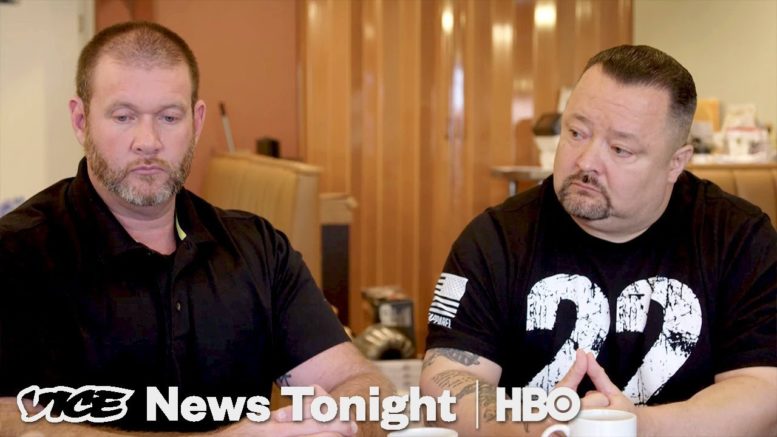FRESNO, Calif. — Aaron McGlothin, 43, works as a corrections officer at the federal prison in Mendota, California. He’s had a decades-long, stable career in corrections. But with no paycheck in sight due to the government shutdown, he’s started driving for Uber to help make ends meet.
“It can be a little embarrassing,” he told VICE News while driving around Fresno in the rain on Saturday, looking for rides. “The embarrassing thing is, it’s like, well — you have a job, you know? And then when people see this they’re going to realize that, well heck yeah you got a job, but you’re not getting paid.”
It’s a slow day, and after two hours Ubering McGlothin makes less than $10 — but at this point, anything’s worth it.
“I live paycheck to paycheck,” he said. “I’ve got to have food on my table. I’ve got to have gas in my tank to get to and from work because I’m not getting paid. I’ve got to have heat, gotta have my lights on. I’ve got to have my electricity on.”
McGlothin is one of 40,000 Federal Bureau of Prisons staffers nationwide, most of whom were deemed “essential” and therefore required to work without pay until the shutdown ends. Bureau staffers say they’re already dealing with low morale after years of cutbacks in their prisons, meaning more inmates with fewer guards and gear they worry is inadequate to protect them.
And now they’re working without knowing when they’ll get paid.
“Everybody’s scared. They don’t know what the hell’s going on because this is different than 2013. We all went through the 2013 shutdown and it was 16 days,” McGlothin said. “There was a different sense in Washington. They wanted to reopen. There’s not that sense right now.”
The uncertainty means that some employees are having to forego child support payments, leave healthcare bills unpaid and choosing between putting food on the table or enough gas in their tanks to go to work. And John Kostelnik, a local union president at the federal prison complex in Victorville, Calif., says he’s worried about the mental toll the stress may take on his workers.
“You walk behind these prison walls and deal with the worst of the worst. See some things you never want to see in your entire life,” he said.
“My staff are dealing with a lot of issues, and this is just weighing down on them even further. And that’s one of my biggest fears — is that this is going to drive somebody over that over that line and something bad is going to happen.”
Kostelnik said that in the last two years two employees in the Victorville have committed suicide.
Kostelnik and McGlothin said they disagree with Trump’s insistence that federal workers support his standoff with Democrats over funding for the border wall. And Edward Canelas, a veteran and union leader at a federal prison in Dublin, Calif., who voted for Trump in 2016 said he was “very insulted” by the president’s comments.
“You said ‘I’m going to take care of them veterans and I’m going to take care of law enforcement.’ I haven’t seen it. With all due respect to the president of United States, I have not seen it.”

